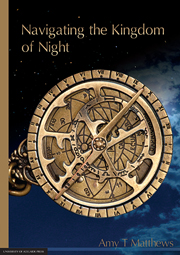Introduction
Published online by Cambridge University Press: 05 April 2014
Summary
In late 2011 I was approached about turning the exegesis from my Creative Writing PhD into a book. I was flattered, but also apprehensive about returning to the Holocaust material after three years away from it. What excited me was the idea of embodying the experience of a creative PhD. Over the course of my PhD I'd lived multiple lives, switching between the roles of researcher, academic, teacher, daughter, partner, wife and mother. This isn't unusual: we all lead multiple existences, slipping in and out of roles on a daily basis. But with my work, which consisted of a novel about a Holocaust-obsessed waitress named Molly (End of the Night Girl, published by Wakefield Press in 2011) and an essay called ‘Navigating the Kingdom of Night’, I knew that each and every one of those selves had contributed to the work. They were all part of the creative process. I wanted to try and capture how those different ‘me's’ had been part of my thinking and writing.
Easier said than done. In the first draft of this book I separated out the two main voices, ‘Everyday Amy’ and ‘Academic Amy’, because that was how my thinking had worked throughout my PhD; there were always two modes of operating and two voices in my head. After two degrees and a year of Honours, the critical mode came naturally to me.
- Type
- Chapter
- Information
- Navigating the Kingdom of Night , pp. 1 - 4Publisher: The University of Adelaide PressPrint publication year: 2013



